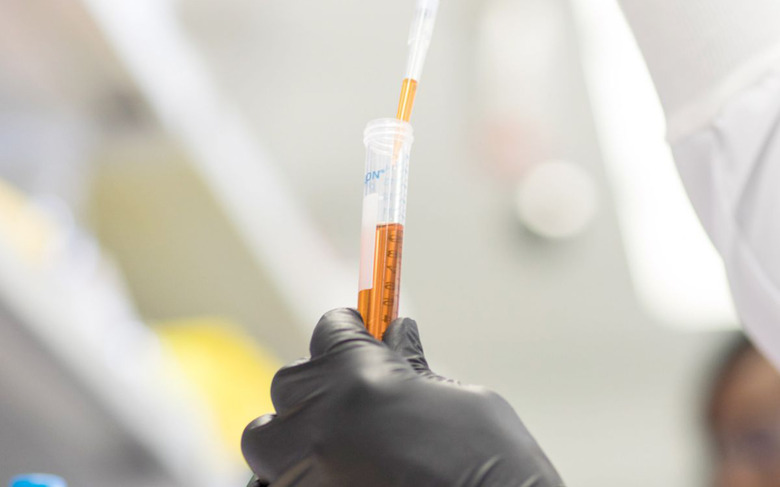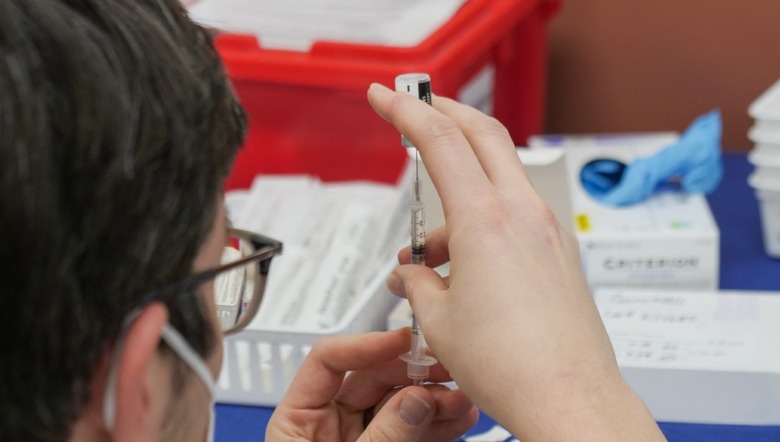We Need A COVID-19 Blood Clot And Vaccine Breakthrough Reality Check
People vaccinated against COVID-19 can still catch coronavirus and some immunizations carry an increased risk of blood clots, new research confirms, but officials maintain that the benefits still significantly outweigh the risks. The ongoing studies – running in parallel to COVID-19 vaccinations, as healthcare providers attempt to slow the global pandemic – underscore the need for comparative nuance when it comes to deciding about whether to get a vaccine shot.
Post-vaccine blood clots are a risk - but so are post-COVID-19 blood clots
Recent health scares regarding unusual – and potentially life-threatening – blood clots following COVID-19 vaccinations have prompted some countries to temporarily halt use of certain drugs. In the US, for example, the CDC and FDA recommended a brief pause in deployment of the Johnson & Johnson single-shot vaccine, after reports of a number of deaths.
However, much as the European Medicines Agency (EMA) concluded about the AstraZeneca vaccine, the expectation is that the CDC and FDA will decide that continued use of the Johnson & Johnson vaccine is advisable. That was underscored by new research published by the University of Oxford – which co-developed the AstraZeneca vaccine – into the cerebral venous thrombosis (CVT) blood clots.

Their study concluded that, while the COVID-19 vaccination could lead to an increased risk of CVT clots among at-risk groups including older women, that risk was still far smaller than the increased risk of the same blood clots after having COVID-19 itself.
"CVT is more common after COVID-19 than in any of the comparison groups, with 30% of these cases occurring in the under 30s," the Oxford researchers concluded. "Compared to the current COVID-19 vaccines, this risk is between 8-10 times higher, and compared to the baseline, approximately 100 times higher."
It calls attention to the fact that, while research on COVID-19 is ongoing, the results of that research need to be considered within the context of the greater health landscape. So far, according to the CDC and FDA, there have only been six reported cases of the rare blood clots among individuals who received the J&J Janssen vaccine, for example.
"We've reached two important conclusions," Paul Harrison, Professor of Psychiatry and Head of the Translational Neurobiology Group at the University of Oxford, said of the findings. "Firstly, COVID-19 markedly increases the risk of CVT, adding to the list of blood clotting problems this infection causes. Secondly, the COVID-19 risk is higher than we see with the current vaccines, even for those under 30; something that should be taken into account when considering the balances between risks and benefits for vaccination."
Even among vaccinated people, COVID-19 infections are still expected
The other big headline among COVID-19 research this week has been so-called "breakthrough cases": that is to say, significant coronavirus infections even among groups that have been vaccinated. While the efficacy results of the three vaccines – Moderna, Pfizer, and Janssen – already granted emergency use authorization in the US by the FDA are high when it comes to preventing severe cases of COVID-19, the reality is that no vaccine can be perfect.
As of April 13, the CDC says, approximately 5,800 breakthrough infections for COVID-19 have been reported to the agency. That's out of 66+ million people in the US who had been fully vaccinated in that period.
Of the roughly 5,800 cases reported, 396 people required hospitalization. 74 people died, the CDC said.

"COVID-19 vaccines are effective and are a critical tool to bring the pandemic under control," a CDC spokesperson said. "All of the available vaccines have been proven effective at preventing severe illness, hospitalizations and deaths. However, like is seen with other vaccines, we expect thousands of vaccine breakthrough cases will occur even though the vaccine is working as expected."
Potentially lending to the public confusion is that COVID-19 vaccine efficacy is typically reported across two criteria. The headline figure is how well the vaccine prevents "severe" cases of coronavirus: those which lead to hospitalization and even death. At the same time, there are also results around general COVID-19 infection rates, which do not reach the criteria to be considered "severe" for patients.
Also adding to the complexity is that the pharma company trials typically do not include those with some preexisting conditions such as being immunocompromised. That means, once public vaccinations begin, the efficacy among such individuals can be markedly different to what the pure statistical effectiveness might be.
As with the blood clotting issue, the general guidance is that the risks of not getting vaccinated still far outstrip those risks after getting vaccinated. Based on the CDC's numbers, only 0.00009-percent of people in the US who have been vaccinated in full against COVID-19 have gone on to get infected.
